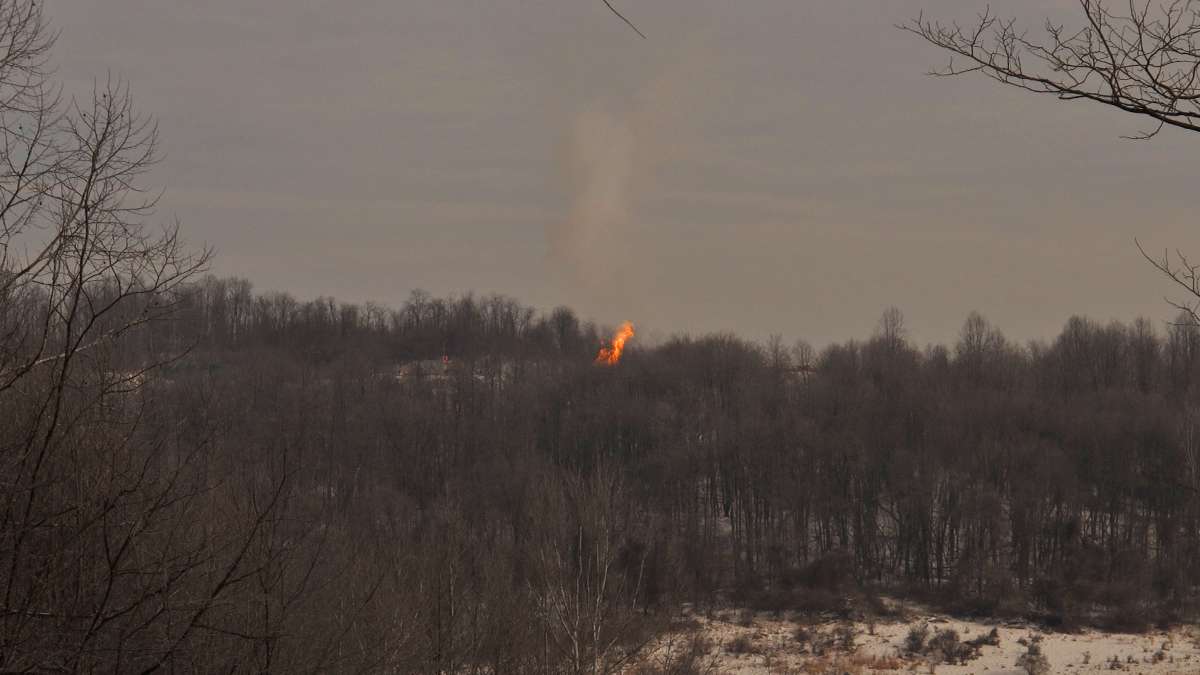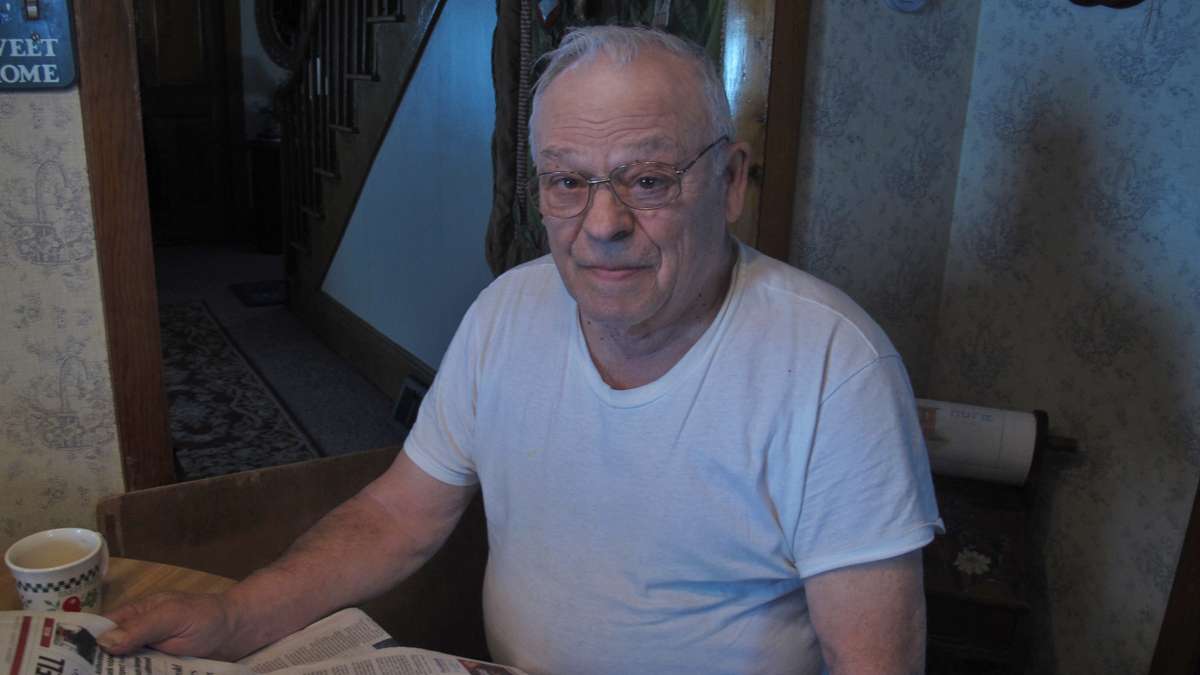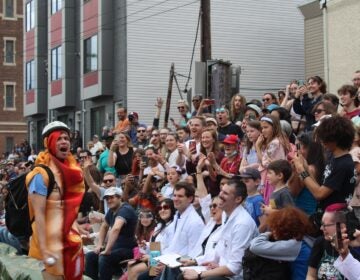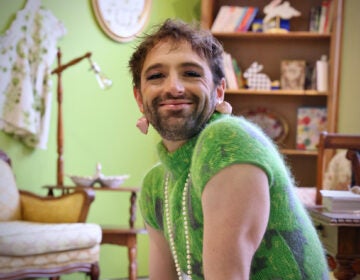‘I came here to find out why you killed my mother.’
ListenEach month, NewsWorks presents a story from the First Person Arts podcast. Today, Jamie J. Brunson tells us how she discovered the truth about her mother’s brutal murder, after years of piecing together the puzzle of what happened that day.
As part of a monthly series of stories from the First Person Arts podcast, NewsWorks presents this extraordinary and moving story by FPA Executive Director Jamie J. Brunson. After years spent trying to piece together the puzzle of her mother’s brutal death, Brunson confronts her murderer to find out what really happened that day. But it would be much later before she found out the whole truth.
Stories are chosen from FPA story slams, where storytellers are challenged to deliver a true five-minute tale about their lives, based on a theme, in front of a live audience, and without notes. This story was originally performed live as part of the 2012 First Person Arts Festival.
Click the audio button above to hear his story. A transcription follows. [Audio production by Kimberly Haas.]
My mom was this cross between a black Marilyn Monroe and Angela Davis. So, if you can imagine this drop-dead gorgeous voluptuous light-skinned African-American woman with fire-red hair in the front row of a Malcolm X rally, clenched fists in the air, shouting out Black Power movement slogans, that was my mom.
Now my dad, he was this kind of talk, dark and handsome, kind of swarthy bad boy, shrouded in mystery. And I mean a lot of mystery, because to this day, I still don’t know what he did for a living. Ok? And he talked in parables like Jesus, but not really like Jesus, ’cause he never really answered your question.
So I’d say, “So, Dad, you know, I’m on my way to work. Are you on your way to work?” And he’d say, “Kiddo … Where you goin’, I been.”
What the hell does that mean? Ok, I just don’t get that.
So, they meet, and I’m born. And I’m supposed to be named after my dad, James. And I’m really glad that didn’t happen because — and don’t laugh — I have an aunt whose name is Jimmy. And we called her Aunt Jimmy. She had hands the size of pie tins, Ok? So you did not want to be Aunt James.
So I’m born. And when I was 2 years old, my dad murdered my mother.
But she didn’t die right away. She lingered for about 30 days as a paraplegic, and then she finally succumbed to pneumonia.
Now, I know it doesn’t make any sense, right, but I was kind of mad with my mom. Because I’m thinking: For 30 days, right, you’re in the hospital; you didn’t write me a note; didn’t say, “Jamie, this is what I want for you. This is the kind of woman I want you to grow up to be,” or even “I love you.” None of that. Now I know it’s not logical, because a paraplegic can’t write. But I was mad anyway.
So my grandmother, her mom, and my uncle took me in, and they raised me. And my uncle was actually there when my mom got killed. He used to always say that he wished it had been him and not her. And it was pretty sad, because I saw my uncle lose his life inside a bottle of vodka bit by bit over the years.
And we never talked about what happened to my mom in the house — kinda like if we didn’t talk about it, then it didn’t happen. If we didn’t talk about it, then it wasn’t really eating us all up alive.
You know, that kinda made me mad, too. I was pretty angry at that age.
And you know, I punished them. You see, by the time I was 12, I was cooking and cleaning the house — and make no mistake: She who runs the kitchen runs the world. My uncle hated spaghetti. So guess what we had for dinner at least two nights every week.
I’d be stirring the pot, waiting for him to come home from work. He’d come be-bopping in the house, all happy and hungry and excited, and he’d be like: “What’s for dinner?” And my head would spin around 360 degrees, like “The Exorcist,” and I’d say SPAGHETTI! And he’d grunt and head to Burger King. I had power.
But, you know: I’m not evil. I just kind of felt like a tree without roots. I didn’t feel like I had any history. I didn’t know what had happened. So when I was 20, I made a major decision. I was going to find my dad.
So I go to the yellow pages, and I open it up, and — lo and behold — there he is. In the yellow pages. Phone number and address. Less than 20 miles away.
So I call him on the phone, and I say, “This is Barbara’s daughter, and I’m coming to see you.” And he goes, “Ok.”
So I get in my car, and I turn the key — and instantly I transform into Cleopatra Jones. do you know who Cleopatra Jones is? 1970s Black Exploitation movie star, Cleopatra Jones was a six-foot-four beautiful black African woman who was a CIA agent, doing battle against The Man, with psychedelic platform sneakers and an afro 24 inches that bobbed up and down when she walked. Ok, Cleopatra was bad.
And she drove a stingray. And in the door panels on either side, she had an arsenal of weapons. And Cleopatra Jones, in the 1970s, had a car phone. It was the size of a tire, but it was a car phone.
So Cleopatra Jamie Jones is driving her Nissan “Stingray,” with a water pistol in the glove compartment, on my way to see my dad.
He must have been kinda scared that I was going to spray the room with bullets, because, when I arrived, there were 30 people there. So i’m thinking: What would Cleopatra Jones do? So I’m hobnobbing with the crowd. I’m smiling. I’m checking everything out, right. And eventually the crowd thins. And it’s just me and him. And I do my Cleopatra stance, and I say: “I came here to find out why you killed my mother.”
And he said, “It wasn’t me.”
What do you mean “It wasn’t me”? I’m ready. I’m going to get the water pistol. What’d you mean—?
And he says, “I would have never killed your mother. I loved her. And I would have never taken your mother from you.”
He’s got me now. So he continues to tell me this story of espionage and intrigue — that my mother was, in fact, a femme fatale embroiled in a conspiracy. And he didn’t kill her. In fact, it was a police officer that killed her — the pigs! And that, as she she lay dying, he held her in his arms, and she looked up at him with her last word, and she said, “Oh, God. I love you, Jimmy.”
Jimmy? That’s what the hell you said? That was your last word? Jimmy? And I’m mad again.
But he’s the only person talking to me about my mom — you know, telling me about her smile and how she looked. So i’m holding on to him.
And one day he calls me on the phone, and he says to me, “Jamie, I never did anything for you as a kid. So I want to do something for you.”
OK, dad. Cool. Great.
He says, “I’m going to take out a life insurance policy, and I’m going to make you a beneficiary.”
I said, “Good looking out, Dad. Right on!”
He says, “It only costs $800 down.”
“Well, Dad … $800. I’m working full time, I’m in school—”
“$800 for security. You need that security. It’s the only thing I can do for you.”
OK, dad. Here’s the $800. Here it is.
That was the last time I ever saw my father.
So I decided: Maybe he wasn’t telling me the truth. So I’m going to go to the court of quarter sessions, and I’m going to look up my mom’s murder trial, and I’m going to find out what really happened.
So I go over there. And they tell me you’ve got to look it up by the name of the person — not the victim, but the criminal. So I go in expecting to get a file of one murder case.
Well, Honey, his file was about six inches thick. This man, this bad boy, was really a bad boy. He had convictions in multiple states. I mean, he was an entrepreneurial criminal. He was all over the place — years, even, before I was born.
So I finally find the transcripts of my mom’s trial, and I find my uncle’s testimony — remember I said he was there when my mom got killed? And so I read the testimony … And my dad kinda got it wrong.
Here’s what really happened:
My dad knocked on the door. My mom opened the door. He shot her in the throat. My mom fell forward. He stepped over my mother and started shooting into the house at everyone in there, not knowing whether I was in there or not. And then he ran, and he left her lying in a pool of her own blood on her front stoop.
But here’s where it gets interesting. My uncle came out and picked my mother up laying in her blood, and my mother looked up at my uncle. And she did not say “Oh, my God. I love you, Jimmy.” What she said was “Oh, my God. I love you, JAMIE.”
And there it was in black and white. My mother crossed time and space to let me know that I WAS her No. 1. And the she was thinking about me. And nobody else.
And guess what. In front of all you beautiful people I can say: “Mommy, I love you back!”
Thank you.
Jamie J. Brunson is an award-winning playwright and a published poet. She is currently working on a memoir. We followed up with Brunson to open up this story about her quest for truth.
That can’t be an easy story to tell. How did you prepare for telling it?
It is a hard story to tell. I prepare by treating it like a monologue and rehearsing it. That gives me some distance. I’m still waiting for the moment that I tell the story and it hits me. I know that’s coming one day.
You were so young when your mother was taken from you. Do you have any natural memory of her? Who is the person who told you about her?
Having no natural memory of my mother — not the sound of her voice, the touch of her hand or anything — has been very, very difficult. I spent so much time reaching out for her in my mind and pulling back air. Accepting that she will never be there in my memory is happening little by little over time.
No one ever talks about my mom to me for long. They always begin, then I see the pain rush in — and they quickly change the subject.
How is it that your father was not in prison when you visited him in your story?
I didn’t find my father until I was 20. He killed my mom years earlier. By that time, he had served his sentence and had been released. Even so, he did not receive a severe sentence for murdering my mom. The court transcripts said that it was a crime of passion and did not give him the maximum.
How did your relationship with your uncle change after you discovered the truth about your father?
Sadly, my uncle drowned when I was 17 years old. I never got to tell him that I met my dad. Guess that was a good thing.
What can you tell us about the memoir you’re working on?
I am working on a memoir in verse. I am believing that, if I can write the pain, I can write it out of me. It’s coming slowly, though. Many of my childhood memories are lost to me. Each time I uncover one, I write it. Then I have to live with it. That’s the part that takes so long. Let it settle — change me. Live with it. I guess it’s more accurate to say, “change my view of the memory from that of a child to that of a grown woman.” That’s where I get the strength to confront it — from my womaness. Then I can move on. I hope I’m finished with that part of my life soon. I’d like to move on.
WHYY is your source for fact-based, in-depth journalism and information. As a nonprofit organization, we rely on financial support from readers like you. Please give today.






